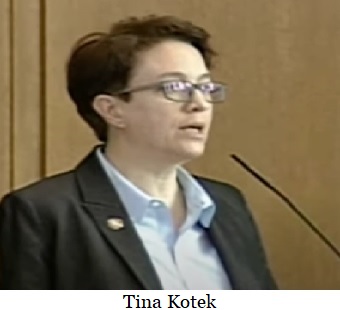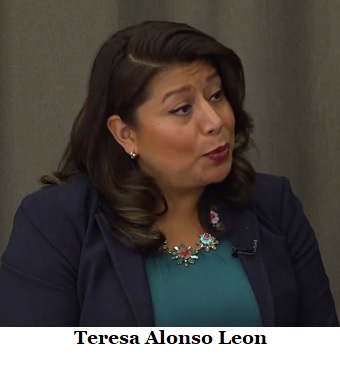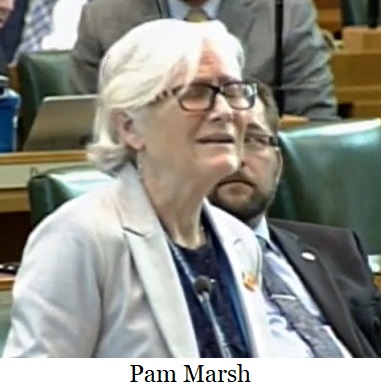 Post an Event
Post an Event
| Benton County Republicans’ Private Fundraising Event, “Bent-on Boots and Bling” with Trey Taylor |
| Friday, September 5, 2025 at 5:00 pm |
| Featuring Trey Taylor
Music Private Event
Friday, September 5, 2025 5:00-5:30 pm VIP Reception
5:30-8:00 pm Heavy Appetizers,
Auction, Concert
Red: $750 VIP Reception
Front Row Table Sponsor
White: $500 Table Sponsor
Blue: $50 per person
Limited Seating. Get Yours Now!!!
Support Local
Dress up: Bling, Cowboy, Patriotic Benton County Republican
FUNDRAISER
www.BentonGOP.org
Get your tickets today at:
https://www.bentongop.org/event-details/benton-county-republicans-fundraiser/form
About Trey:
Trey is the youngest African American Man in Country Music History. The Denver Post wrote
"It's impossible to miss his enthusiasm. With a fondness for cowboy boots, gaudy colors and dazzling jewelry, Trey Taylor could stand toe to toe with any of the Pop, Country or even Rap
contemporaries of his generation.“ |
| Trysting Tree Golf Club, 34028 NE Electric Rd., Corvallis |
Suspension will be in place for 48 hours
With the current and fore-casted heat in Oregon, the Office of State Fire Marshal is
suspending regulations that prohibit the self-serve of gasoline at retail gasoline service stations.
Governor Brown’s Office approved the suspension of the regulations. The suspension will be in place for 48 hours, until the evening of Tuesday, June 29th, 2021.
This suspension of the self-service regulations does not affect areas of the state or time frames that are already authorized for self-service refueling under Oregon law. Information about the rules suspension for self-service gasoline can be found on the
Oregon State Fire Marshal (OSFM) website.
--Bruce Armstrong| Post Date: 2021-06-27 21:25:03 | Last Update: 2021-06-27 22:25:27 |
People of Oregon were banned from capitol
The 2021 Oregon Legislative Session has officially adjourned, marking an end to a sadly controversial legislative session for Oregonians. The public had been banned from attending to the businesses of their own governance at the Salem capitol building, with only one Republican Representative strongly advocating for their attendance. That Representative was Mike Nearman, of Independence, Oregon, and he was expelled by his fellow legislators for opening a door for the common people.
Senate President Peter Courtney (D-Salem) and House Speaker Representative Tina Kotek (D-Portland)
made the call to exclude the people of Oregon from attending legislative functions at the capitol building. This seems to have accelerated the passage of many policy bills, which would have likely been halted from public input and participation.
Since January, although they were in the minority, House Republicans called for this year’s session to concentrate on relief for Oregonians negatively affected by the pandemic, natural disasters, address learning losses and protect jobs.
While harmful legislation was still passed on party lines, Republicans were able to weaken or eliminate some of the worst offenders.
At the same time, Republican caucus members celebrated several wins such as better protections for students, a common-sense solution to lower the cost of cold medicine, relief for property owners, and more.
“I’m proud of the work we accomplished for our communities and for Oregonians across the state this session. From the start, we called for a focus on pandemic recovery, returning students to school and assistance to wildfire impacted communities,†said House Republican Leader Christine Drazan (R-Canby). “As the legislative session progressed, it was clear transparency suffered as public policy was rushed through behind closed doors. This harmed communities, businesses and families. As the Oregon economy recovers, businesses reopen and students return to school, we must ensure the policy making process also returns to normal, which must include reopening Capitol to the voices of Oregonians.â€
--Bruce Armstrong| Post Date: 2021-06-27 09:50:04 | Last Update: 2021-06-27 13:00:56 |
More bureaucracy on it’s way
A bill that would further impose governmental bureaucracy upon child care in Oregon is moving through the Oregon legislature.
HB 3073 has now passed through both the Oregon House and Senate chambers of the Oregon legislature and awaits being signed into law.
The bill was chiefly sponsored by Representative Karin Power (D-Portland), Representative Jack Zika (R-Redmond), Senator Kathleen Taylor (D-Portland), Representative Teresa Alonso Leon (D-Woodburn), Cedric Hayden (R-Roseburg), Bobby Levy (R-Echo), Courtney Neron (D-Wilsonville), Greg Smith (R-Heppner), Senator Kayse Jama (D-Portland), and Senator Tim Knopp (R-Bend).
The bill does a number of things to child care in Oregon, firstly, it will change the name of the Early Learning Division to Department of Early Learning and Care.
It will also establish the Department of Early Learning and Care as state agency that is separate from Department of Education and that functions under, and is coordinated by, the Early Learning Council. It will also revise the goals of statewide early learning system.
It prescribes expanded duties, functions and powers of Department of Early Learning and Care, including administration of Employment Related Day Care. It also modifies the requirements of employment related day-care.
Furthermore, it directs the Early Learning Division, Department of Education and the Department of Human Services to develop and implement plans for seamless transfer of relevant duties, functions and powers, and to report on plans to appropriate interim committees of Legislative Assembly.
It is yet another bill that has the emergency declaration attached, and is therefor effective on passage.
--Bruce Armstrong| Post Date: 2021-06-27 09:06:19 | Last Update: 2021-06-27 21:28:26 |
“This is a historic investmentâ€
As the 2021 Legislative Session comes to an end Senate President Peter Courtney and Speaker Tina Kotek were quick to send out a series of articles featuring how much of your money they spent.
Peter Courtney’s headlined three articles:
Lawmakers Pass Groundbreaking Package, Invest More Than $470 Million in Behavioral Health.
“The 81st session will be remembered as the one where we finally started making investments to bring about the promise of the deinstitutionalization of people with mental illness and started making community based treatment an actual reality,†said Representative Rob Nosse (D-Portland). Somewhat of a contraction since deinstitutionalization took place years ago with no help for communities faced with what to do for them.
“We must mainstream mental health. Until we treat mental health like we treat the rest of health care, we’re not doing enough,†said Senate President Peter Courtney (D-Salem). “This is a historic investment. It will save lives. We must help children and adults struggling with mental illnesses from falling through the cracks.â€
Legislature invests over $600 million for wildfire recovery and prevention
“Last year’s fires were devastating. Oregon and her people are still recovering,†Senate President Peter Courtney said. “We made real progress this session to help our communities rebuild. We changed the way we respond to wildfires. The Legislature will help wildfire survivors get back on their feet.â€
This allotment is mostly for infrastructure projects, grants and financial assistance along with $75 million for food and shelter for wildfire survivors and $23.2 million to reimburse counties for lost tax revenues.
$765 million in investments headlines legislative housing accomplishments
What became a crisis during the COVID-19 lockdown has been compensated for and then some. In the months leading up to the session, the Emergency Board approved more than $500 million in rental assistance and other housing supports.
- Homelessness received $118.8 million along with three bills providing more possibilities for shelter.
- Tenant Support received $18,3 million plus three additional bills providing assistance.
- Homeownership received $65 million and added four bills addressing disparities in home sales and ownership.
- Housing Supply received $578,45 million along with five bills easing zoning laws for affordable housing.
Speaker Tina Kotek published her own list that includes:
- $9,3 billion for k-12 schools.
- $578.5 million for K-12 education projects.
- $2.222 billion higher education
- $77.5 million early learning
- $687.2 million for transforming behavioral health.
- $816.9 million for tackling the housing crisis.
- $706.75 million investing in wildfire recovery and disaster preparedness.
- $442 million to improve water systems.
- $543.5 million supporting a strong economy recovery.
- $124.3 million improving transportation infrastructure.
- $258.9 million focusing on racial equity.
The millions for building a strong economy recovery is more like recovery for pet projects. It includes grants for movie theaters and live events, investments in emerging business with a priority on the underrepresented, grants for Oregon Main Street Revitalization, rooftop solar rebates, and several bills funding various workforces and higher wages in the healthcare field.
There remains the questionable constitutionality of some of the seventeen categories that focus on racial equity after two federal judges ruled against using race or gender as a priority.
Keep in mind that all this spending doesn’t include state agency budgets. These expenses may not all come from General Funds, but even Other Funds comes from fee payers. Despite what President Courtney and Speaker Kotek tout as an accomplishment, the money comes from us one way or the other.
--Donna Bleiler| Post Date: 2021-06-26 18:18:32 | Last Update: 2021-06-27 21:24:11 |
“Many critical issues were left ignored by the supermajorityâ€
Today concluded the 2021 legislative session. For some, it was defined by not a single member of the public being allowed into the Capitol building, unprecedented in the history of Oregon. The House
expelled a member, again, unprecedented.
Senate Republican Leader Fred Girod (R-Lyons) released the following statement:
“The best bill of the session is always sine die.
“Legislatures around the country found a way to allow citizens into their buildings to meaningfully participate in the legislative process. Not in Oregon. That was a travesty of democracy, transparency, and accountability.
“As much as we disagreed this session, Republicans and Democrats were still able to do some good things for Oregonians. We were able to make major investments in wildfire recovery. Bipartisan police reform was passed and Republicans were able to pass major bipartisan public safety reforms to protect vulnerable Oregonians.
“This session, Republicans lifted up the voices of students and parents by pushing for choice and opportunity in education. Republicans were strong supporters of getting kids back in school after a year of lost learning. We were able to kill some harmful tax increases and protected most of the Kicker. We also stopped harmful anti-public safety legislation.
“Unfortunately, Democrats advanced an extreme agenda that will continue to artificially depress Oregon’s potential. Many critical issues were left ignored by the supermajority, like reforming the Governor’s emergency powers. It’s now our job to educate Oregonians about these harmful policies and earn their trust to govern.â€
The Oregon Legislature is expected to convene in September for a short special session to take up redistricting. It is next scheduled for a constitutional short session on February 1, 2022.
--Staff Reports| Post Date: 2021-06-26 17:54:23 | Last Update: 2021-06-26 18:18:32 |
California-style rolling blackouts and brownouts could result
As the 2021 legislative session comes to a close, Democrats are intent on finishing it in style by passing
HB 2021. The bill would require the utility companies that power 61% of Oregonians to completely transition to unreliable energy sources. It was introduced by Representatives Pam Marsh (D-Ashland) Khanh Pham (D-Portland) and Senators Michael Dembrow (D-Portland) and Lee Beyer (D-Eugene).
The policy could result in California-style rolling blackouts and brownouts during times that the power grid is strained. Of course, Oregonians would be paying higher electric bills for that privilege. The bill would further hurt jobs and economic development as businesses’ energy costs would skyrocket.
“Hiking Oregonians’ energy costs during an economic recovery is one of the dumbest ideas I have ever heard of,†said Senate Republican Leader Fred Girod (R-Lyons). “This kind of stupidity has become common in Oregon because of the majority party. This bill just adds insult to injury to the countless Oregonians who have endured massive hardship over the last year and a half.â€
The bill lays out completely unattainable emissions reduction goals that even if reached, would deliver virtually nothing in measurable environmental benefits.
“This bill accomplishes nothing for our environment,†Senator Girod continued. “It is simply a bill to virtue signal to extreme environmentalist groups that will cause Oregonians to pay more for less reliable energy.â€
HB 2021 passed the Senate over bipartisan opposition on a vote of 16-12 and now heads to the Governor’s desk.
--Staff Reports| Post Date: 2021-06-26 17:36:54 | Last Update: 2021-07-04 23:33:27 |
Among five candidates to be considered
The Oregon Republican Party held the House District 23 Nominating Convention on Friday, June 25th, and the eligible delegates of that district have chosen 5 contenders among the 10 candidates that were considered. Voting delegates of the convention were required to be Republican PCPs (Precinct Committee Persons) of HD 23, as per Oregon election law.
Mike Nearman received the most votes, and seemed to be the clear first choice of the voters.
Nearman gave the following statement after the convention:
"I'm humbled that my fellow Precinct Committee-persons voted overwhelmingly to return me to the House as their representative. The fact that they chose me shows that they value someone with courage and principles that will stand up to Democrats, the media and even their own party to do what is right."
Those considered at the convention were allowed time for candidate speeches and took turns answering questions for the voting delegates.
Those candidates were:
- Jeff Kubler
- Beth Wytoski
- Mike Nearman
- John Swanson
- Anna Scharf
- Jim Thompson
- Jim Bunn
- Mickey Garus
- Harry Noah
- Warren George
The convention started off with discussion on whether 3, 4, or 5 nominees should be selected for county commissioner consideration.
The voting body decided on 5 nominees.
After candidate speeches and three rounds of questions and answers, the body voted and the election results were announced.
The finalists chosen were in order of most votes received were:
- 1) Mike Nearman
- 2) John Swanson
- 3) Jim Bunn
- 4) Mickey Garus
- 5) Anna Scharf
Those nominees will now be considered for appointment to be Representative of House District 23 in the Oregon legisalture by the Commissioners of Polk, Marion, Yamhill, and Benton counties. That process is expected to be concluded by July 9th, 2021.
--Bruce Armstrong| Post Date: 2021-06-26 10:25:11 | Last Update: 2021-06-26 12:19:03 |
While active wildfires rage in Oregon
Earlier this month, with bipartisan support, the Senate passed a version of
HB 2434, introduced by State Representative Nancy Nathanson (D-Eugene) that included the Forest Harvest Tax. The tax provides critical funding for fire fighting, forestry and climate education programs at Oregon State University, and critical forest conservation programs.
Today, the House Democrats, less one, voted down the measure, sending it to a conference committee. The bill came back to the Senate floor without those key funding provisions.
“Make no mistake, while several active wildfires are burning in Oregon, Speaker Kotek and House Democrats refused an increase in funding for fire fighting. That is what happened today,†Senate Republican Leader Fred Girod (R-Lyons) said. “They gave the Senate no choice but to pass the bill without these important provisions. Their temper tantrum is going to have real-life consequences for those who fight fires.â€
Parliamentary procedure required the Senate to pass the version of HB 2434 that did not include the increased Harvest Tax.
House Bill 2434 passed the Senate on a vote of 24-4, despite bipartisan disappointment that House Democrats stripped important forestry funding from the bill.
--Staff Reports| Post Date: 2021-06-25 22:17:01 | |
All remaining COVID-19 restrictions to be lifted
Governor Kate Brown has signed a
recovery-focused executive order lifting all remaining COVID-19 health and safety restrictions issued under Oregon’s emergency statutes.
Restrictions will be lifted when Oregon achieves a 70% first dose adult vaccination rate or on Wednesday, June 30, whichever occurs soonest.
Senate Republican Leader Fred Girod (R-Lyons) countered:
“While there is really no need to wait until June 30, it’s great news that Oregonians will finally be able to get back to normal life. Businesses and customers won’t have to worry about vaccine passports anymore. Oregonians should not forget the gross abuse of power that has taken place by Democrats over the last year that locked kids out of the classroom, devastated small businesses, and threw people out of work.â€
With restrictions lifted, the state will shift to a focus on helping Oregonians and communities recover from the impacts and the economic toll of the pandemic.
“I’m proud of our collective efforts to vaccinate more than 2.3 million Oregonians. It is because of this success that we can move Oregon forward, and into the next chapter of this pandemic. We are ready,†said Governor Brown.
The Governor signed the executive order on Friday in a press conference with Oregon Health Authority Director Patrick Allen, state epidemiologist Dr. Dean Sidelinger, and Oregon Department of Education Director Colt Gill.
The Governor’s recovery order rescinds Executive Order 20-66, the successor to her original “Stay Home, Save Lives†order and subsequent “Safe and Strong Oregon†orders, which authorized Oregon’s statewide mask mandate and the county risk level system, including restrictions on businesses and other sectors for physical distancing, capacity limits, closing times, and more. The recovery order also rescinds Executive Order Order 20-22 (Non-urgent Healthcare Procedures), Executive Order 21-06 (K-12 Schools), Executive Order 20-28 (Higher Education), and Executive Order 20-19 (Childcare Facilities).
With the repeal of the set of executive orders that placed COVID-19 related restrictions on Oregonians, the recovery order extends the emergency declaration for the ongoing COVID-19 pandemic.
A D V E R T I S E M E N T

A D V E R T I S E M E N T
The Governor’s remaining emergency authority will be limited in focus to COVID-19 recovery efforts, similar to the recovery executive order currently in place for 2020 wildfire season recovery.
The recovery order does not provide authorization for agencies to renew restrictions based on emergency authorities.
Some statewide mask requirements may stay in place in specialized settings following federal guidance, including airports, public transit, and health care settings. The Governor’s recovery order will remain in effect until December 31, 2021, unless terminated earlier.
Rescinding the Governor’s executive orders for K-12 schools, higher education, and childcare will mean a shift to a more traditional, local decision-making model for communities when it comes to serving the health and safety needs of students and children.
In order to ensure a return to full-time, in-person instruction in the fall, the Oregon Department of Education and the Oregon Health Authority will be issuing updated, advisory guidance for the 2021-22 school year. Schools will still be expected to comply with longstanding regulations around the control of infectious diseases, and to have a communicable disease management plan.
--Bruce Armstrong| Post Date: 2021-06-25 13:15:31 | Last Update: 2021-06-26 08:36:54 |
Moving to an advisory framework for Covid restrictions
The Oregon Department of Education has now announced the
Ready Schools, Safe Learners Resiliency Framework for the 2021-22 School Year.
The Resiliency Framework helps school districts prepare their staff and campuses for the next academic year. As Oregon enters the next chapter of the COVID-19 pandemic, the Resiliency Framework shifts public school districts to a more traditional, local decision-making model, so that communities can make the health and safety decisions that serve students best.
The framework also reflects Governor Kate Brown’s recent announcement of her order lifting all remaining COVID-19 health and safety restrictions issued under Oregon emergency statutes, including the executive order for K-12 schools.
“The path is clear for students to return to full time, in-person instruction next year. Working together, we can harness this opportunity to rekindle joy and learning in the classrooms, auditoriums, and playgrounds across Oregon,†said Oregon Department of Education Director Colt Gill. “Oregon schools are ready to once again be vibrant places for learners, staff, and their families.â€
The key Resiliency Framework pillars are:
- Oregon public schools will be returning to full-time, in-person instruction next school year.
- A focus on connecting and relationship building as staff and students move back into full-time, in-person instruction.
- Pre-pandemic instructional time requirements will be reinstituted.
- School districts and charter schools may continue to offer online programs for students at their discretion. The Department will engage in an inclusive process to update Oregon’s remote learning quality standards over the next school year.
- The vast majority of health and safety protocols, including face coverings and physical distancing in Ready Schools, Safe Learners guidance, which are currently mandatory, will move to advisory next academic year. The switch to advisory means school districts, public charter schools and private schools will have the option to implement, as appropriate, relevant advisory guidance from the federal Centers for Disease Control and the Oregon Health Authority, and may require face coverings, physical distancing and other measures.
- Key measures that remain required include: Maintaining a communicable disease plan, maintaining an isolation space in schools and submitting a plan for operation.
- The Ready Schools, Safe Learners Resiliency Framework for the 2021-22 School Year becomes effective on June 30, 2021. The Resiliency Framework may be used for summer school 2021 as well as school year 2021-22.
“Schools have more than a year of practice on how to mitigate COVID-19 and create a welcoming and inclusive learning environment for students and staff,†Gill said. “Moving to an advisory framework is a logical progression from emergency state direction to local decision-making for keeping students and staff healthy within each school’s unique context.â€
--Bruce Armstrong| Post Date: 2021-06-25 12:47:42 | Last Update: 2021-06-25 16:58:21 |
Effort Blocked by Senate Democrats
The Oregon Senate Republicans attempted to force debate on
Senate Bill 499, legislation that would compensate those wrongfully convicted for their years of lost freedom.
Senator Kim Thatcher (R-Keizer), the bill’s author, made a motion on the floor to withdraw SB 499 from the Ways and Means Committee to debate and vote on it. Senate Democrats shot down the motion.
“Everyday this bill gets delayed, is another day justice is denied for these Oregonians,†Senator Thatcher said. “I agreed to send this bill to Ways and Means because as a matter of principle, we should have accurate and thorough accounting of how much things cost. The analysis should have been simple, but instead,it got killed in committee. This isn’t a partisan issue, it simply attempts to right a wrong.â€
According to the National Register for Exonerations, there have been 21 exonerations in Oregon since 1991, many of which have been proven innocent.
A D V E R T I S E M E N T

A D V E R T I S E M E N T
Those who have been found innocent are eligible for compensation under SB 499.These individuals have lost large parts of their lives in prison and/or with a permanent record for a crime they didn’t commit. The process to get exonerated is complicated and can take years to resolve. In most cases, wrongfully incarcerated individuals are continuing to serve time in prison during this process. After being found innocent, those individuals now have to put their lives back together. It is no surprise that those who spent years behind bars for a crime they didn’t commit struggle when they re-enter the community. Compensation and services will help exonerees rebuild their lives, while also sending the message that the state is taking responsibility for a mistake that resulted in the exoneree losing years of their freedom.
Oregon is only one of 14 states that do not provide compensation to wrongfully convicted individuals.
Idaho just signed this program into law this year.
“Senate Bill 499 would have established a common-sense process by which to compensate those who have been wrongfully convicted,†Senator Thatcher said.“It’s a good bill, it wouldn’t cost very much. It should have gotten its day here on the floor. It is unfortunate that it couldn’t be today.â€Senate Bill 499 has bipartisan support,but the motion to debate SB 499 failed by a vote of 12-17, along party lines.
The bill will remain in the
Ways and Means Committee, where it will likely die upon sine die.
--Bruce Armstrong| Post Date: 2021-06-24 15:28:18 | Last Update: 2021-06-24 15:39:33 |
How many laws does Oregon have that can be challenged by the constitution?
With a few days left in the Legislative session, Representative Andrea Salinas (D-Lake Oswego) and Representative Courtney Neron (D-Wilsonville) introduced
HR 6 in a last-ditch effort. House Resolution 6 declares racism to be a public health crisis in this state.
Following the misleading of 209 county, state, and local leaders who have declared racism as a public health crisis or emergency as a step to advance racial equity and justice in the allocation of resources and strategic action.
A New Kind of Hate? Equity is the opposite of equal opportunity. Equity demands an equal outcome and that only happens when you gerrymander to favor one group or another. At the turn of the century the Democrat leadership was pushing tolerance. We passed legislation against bullying, harassment, abuse. Where has the party of tolerance gone?
The unconstitutionality of equity favoring race or gender has been ruled by two federal judges: First U.S. District Judge Reed O’Connor, and federal Judge William Griesbach in Wisconsin.
Even the Oregon Constitution demand equal treatment, not equal outcome, especially Section 20.
Oregon Constitution Article I, Section 1. Natural rights inherent in people. We declare that all men, when they form a social compact are equal in right: that all power is inherent in the people, and all free governments are founded on their authority, and instituted for their peace, safety, and happiness; and they have at all times a right to alter, reform, or abolish the government in such manner as they may think proper.
Section 20. Equality of privileges and immunities of citizens. No law shall be passed granting to any citizen or class of citizens privileges, or immunities, which, upon the same terms, shall not equally belong to all citizens.
How many laws does Oregon have in statute, or has passed this session that can be challenged by the constitution and federal court rulings?
HB 3353 is waiting Governor’s signature that requires coordinated care organizations to increase spending on services and programs that advance health equity to socially disadvantaged.
Equity looks at the color of your skin when determining service, the deepest form of racism.
--Donna Bleiler| Post Date: 2021-06-24 13:50:50 | Last Update: 2021-06-25 09:27:52 |
Read More Articles



















